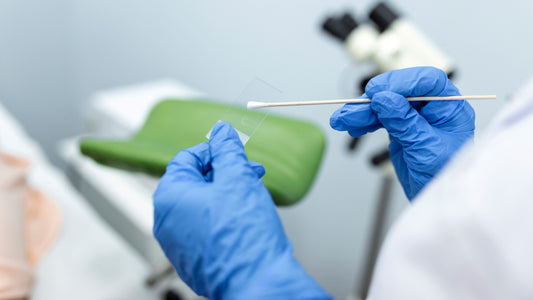

I know that many of you are in the midst of caregiving for an elderly parent, a spouse, or other loved one. As any type of caregiver, you may be exhausted and in overwhelmed mode most days.
And if you’re in or approaching menopause, it’s important that you realize that being a caregiver also significantly increases the likelihood of you having more intense physical and psychological symptoms during menopause. This is especially true for sandwich generation caregivers, those having both children and an elderly parent to care for. 1
And on the flip side, a woman in menopause may be experiencing symptoms (insomnia and brain fog to name just two) that impact her energy and availability—and ability to cope—while caregiving.
This tight interconnection between caregiving and menopause makes perfect sense when you stop to think that menopause is centered on a woman’s transitioning hormones—and that a caregiver’s stress, poor diet, and general lack of self-care can further exacerbate those hormone imbalances. Caregivers can really start to struggle. I still remember my days caring for my parents. I recall the intense fatigue and finding myself more prone to becoming ill. Many women experience significant weight gain while caregiving. 2 And let’s not forget how relentless hot flashes and night sweats can impact a caregiver’s ability to get much-needed rest.
If the physical symptoms weren’t bad enough, if you’re middle-aged or older, and caring for an ill spouse, you are almost six times more likely to suffer anxiety or depressive symptoms as a result of your caregiving. 3
We definitely don’t want all of that! But, let’s be honest. As caregivers, we don’t typically dwell on our own health. It is well-known that caregivers routinely ignore their own health regimens (such as getting that annual mammogram, keeping an eye on our blood sugar, refilling prescriptions, and keeping up with preventive health care appointments, etc.) 4, that we don’t practice adequate self-care, and that we ignore our increasing stress levels. Many caregivers feel guilty if they take time for themselves.
So, for those of you sandwiched between caregiving and menopause, today’s message is all about the need to prioritize some self-care to increase your sense of well-being and help balance your hormones. And note that a healthier/happier YOU also makes for a more focused and energized caregiver.


1. Essential oils can bring a sense of calm, balance, and menopause symptom relief: Essential oil treatments are pampering and relaxing and can help with a number of symptoms such as hot flashes and insomnia. Lavender aromatherapy is one of my favorites and your loved one might enjoy it, too, as it promotes relaxation and improved mood.
2. Hydration ensures happier hormones: Many women don’t drink enough water, especially when they are focused on others’ needs. Being dehydrated during menopause can mean headaches, bloating, more hot flashes, poor blood sugar control, and worse aches and pains. As a start I recommend 60 to 70 ounces of filtered water throughout the day (more if you are exercising or if the weather is very hot), and before (not with) dinnertime. Remember to ensure adequate hydration for your loved one as well.
3. Nature is a natural stress-reducer: Easy and free! Whether you mindfully enjoy your garden (without a cell phone or to-do list in hand), stand barefoot on a patch of grass, or watch a sunset, there is research substantiating nature’s positive health effects, including improved immune health, better stress resilience, and improved sleep. Read the linked article on how deliberately connecting with nature, plugging into earth’s energies, and resetting your body’s own circadian rhythm (through sunlight and watching the sunset) can help keep you from caregiver burnout.
4. Community helps you commit to self-care (And you’ll benefit from more oxytocin in your life!): I know that many (perhaps most?) caregivers start to become isolated, especially if they are in a long-term care situation. Nurturing friendships, cuddling with a pet, or joining a support group (like my Facebook community) all help strengthen your connections and provide mental and physical health benefits. The linked article can get you started. Yes, a few might seem impossible (you may not feel that you have the time or energy to go out with a girlfriend, but what about a quick Zoom call?), but try to say yes to opportunities when you can.
And finally, I have a book to recommend—perhaps a good read while relaxing with some essential oils or while cuddled up with your pet.
A colleague of mine, Diane Blum, has written a memoir about the nine years spent caring for her mom, who passed away at the beautiful age of 93. In the book, Caring for Mom and Other Loved Souls, she shares both her family’s caregiving journey as well as the insights of over a dozen other caregivers (many having a spouse with Alzheimer’s). Diane went through early menopause at the age of 43, and found herself dealing with hot flashes and insomnia right as her elderly mom moved in with her young family. Back then, she found little was offered to her regarding symptom management. No one suggested lifestyle changes, diet, or self-care strategies that could have helped. She believes that a little self-care—especially during menopause—could make a big difference in a woman’s caregiving journey.
The book is a beautiful story of family, love, and loss. It shares many teary-eyed moments, but also many stories of humor as well.
The book discusses some twenty “truths” of caregiving (including why you need to cut yourself some slack and stop feeling guilty about self-care!) and many wonderful caregiving philosophies (including two of my favorites, “Join your loved one’s journey” and “Accept that there will be difficult days.”). Reviewers have been enjoying it and learning from it as well.
Remember, caregiving can be overwhelming… especially when you are in the midst of your own transitioning journey of menopause. But don’t let your stress overshadow the joy of being with the person for whom you are caring. When I look back on those caregiving years, no matter how difficult, I simply breathe and give thanks for all the time and all the blessings I had with my parents. As caregivers, we must cherish those times.
References
2. https://pubmed.ncbi.nlm.nih.gov/10182410/
3. https://www.caregiver.org/resource/women-and-caregiving-facts-and-figures/





